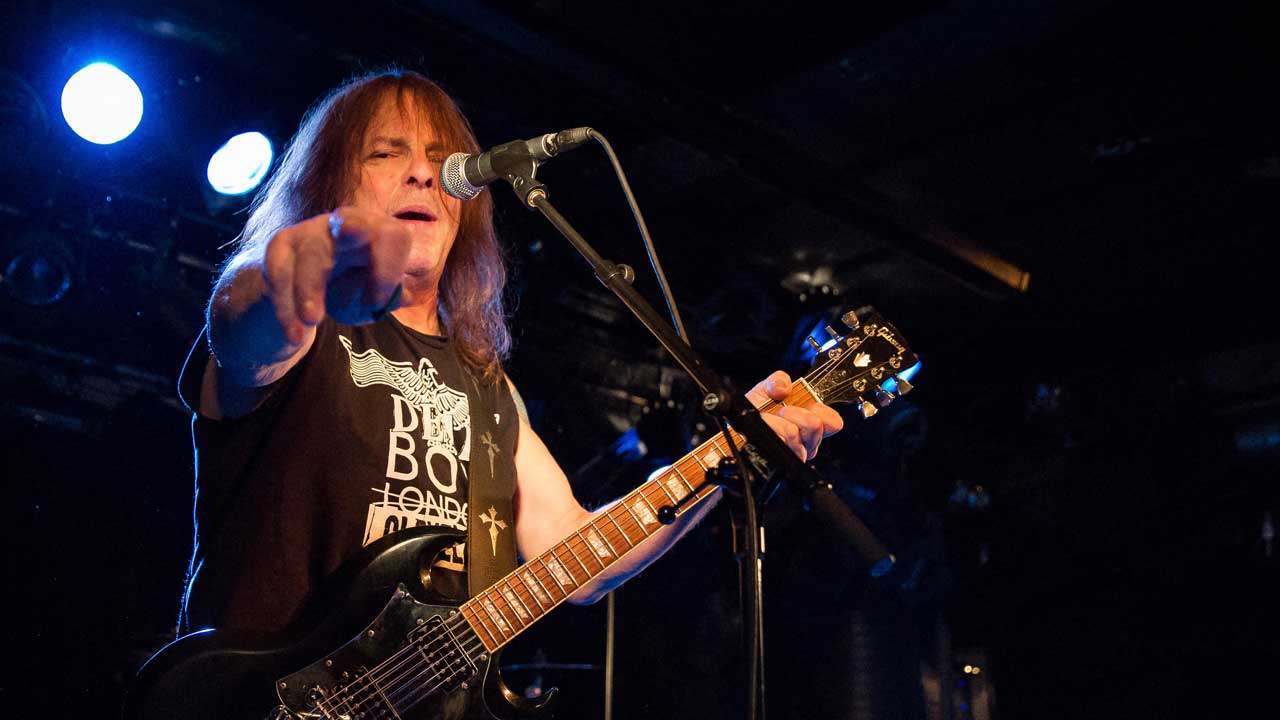"Bands need to say 'we're not doing it'": Why musicians are taking a stand on merch cuts
With venues taking as much as 25% of touring bands' merchandise profits, artists like Exodus's Gary Holt and Architects' Dan Searle are demanding change

Select the newsletters you’d like to receive. Then, add your email to sign up.
You are now subscribed
Your newsletter sign-up was successful
Want to add more newsletters?

Every Friday
Louder
Louder’s weekly newsletter is jam-packed with the team’s personal highlights from the last seven days, including features, breaking news, reviews and tons of juicy exclusives from the world of alternative music.

Every Friday
Classic Rock
The Classic Rock newsletter is an essential read for the discerning rock fan. Every week we bring you the news, reviews and the very best features and interviews from our extensive archive. Written by rock fans for rock fans.

Every Friday
Metal Hammer
For the last four decades Metal Hammer has been the world’s greatest metal magazine. Created by metalheads for metalheads, ‘Hammer takes you behind the scenes, closer to the action, and nearer to the bands that you love the most.

Every Friday
Prog
The Prog newsletter brings you the very best of Prog Magazine and our website, every Friday. We'll deliver you the very latest news from the Prog universe, informative features and archive material from Prog’s impressive vault.
The practice of merch cuts, in which venues take a proportion of a band’s merchandise sales, made repeated headlines in 2023. In March, French avant-garde metal artist Igorrr refused to sell merch at the O2 Forum Kentish Town in London, claiming the venue was asking for a 25% cut.
British prog-metallers Monuments took the same stance at a venue in Athens, citing 18% concessions combined with 24% VAT. Architects drummer Dan Searle tweeted: “Hey bands when are we gonna go on strike and get rid of these insane venue merch cuts?”
In September there appeared to be a positive development when it was widely reported that concert giant Live Nation would scrap merch fees in club-sized venues across the US and Canada. It then emerged that the ‘On the Road Again’ programme would only last for a limited time in a limited number of venues, however.
“I tell people that in this day and age we’re not musicians on tour, we’re traveling T-shirt salesmen,” says Exodus guitarist Gary Holt, who’s been a vocal critic of the venues’ merch cuts. “That’s where we make our money. I’m OK with a reasonable fee but then they started really putting their hands in your pockets and shaking you upside down for doing nothing.”
In the UK, the Featured Artists Coalition (FAC) launched a ‘100% Venues’ campaign that encourages venues to avoid “punitive” merchandise concessions and maintains a database of venues that don’t take a cut at all.
“Merchandise commissions have been a long-time bugbear for artists but coming out of the pandemic it felt like the balance of risk had shifted,” explains FAC CEO David Martin. “It was becoming very difficult for artists to make ends meet and often it was that merchandise commission that made the difference between breaking even and losing money on tours.”
The Live Nation move in the US may help some bands retain more money for as long as it runs, but the National Independent Venue Association (NIVA) said: “Temporary measures may appear to help artists in the short run but actually can squeeze out independent venues, which provide the lifeblood of many artists on thin margins.”
Sign up below to get the latest from Metal Hammer, plus exclusive special offers, direct to your inbox!
We approached Live Nation for comment but they didn’t respond. “The independent venues are complaining, saying Live Nation are doing it to take business from us - well, you get rid of it too, motherfucker,” says Gary. “It’s [mid-level club bands] who need to say, ‘Fuck it, we’re not going to do it.’ And it’s, ‘Do we have no shows and an empty venue or do we break and let these guys keep their T-shirt money?’”
He adds that this is unlikely to happen in practice, however, as most bands need to tour to survive. David does see cause for optimism in the UK. “We’ve had hundreds of venues sign up to be commission-free,” he says. “Fans have become more aware of the issue and artists are looking at new ways of doing things, such as using QR codes, or booking tours based on the 100% list that we have. There’s always more to do but I think the conversation is completely different now.”
Paul Travers has spent the best part of three decades writing about punk rock, heavy metal, and every associated sub-genre for the UK's biggest rock magazines, including Kerrang! and Metal Hammer.
